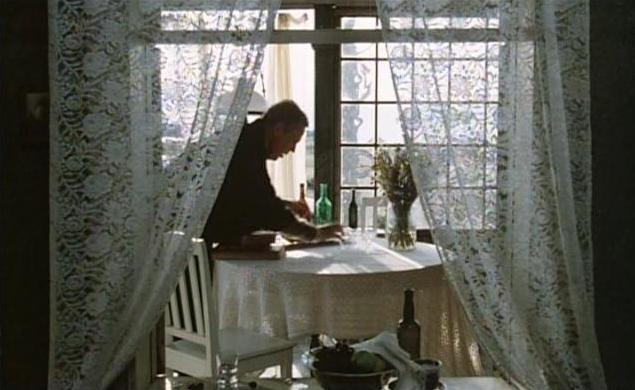

  | |
| Photo © 1986 Svensk Filminstitutet/Orion Classics | |
| VOR: | (4) (What is this?) |
| Awards: | |
| Cannes Film Festival: Grand Jury Prize; Best Artistic Contribution (Nykvist); FIPRESCI Prize; Prize of the Ecumenical Jury | |
| British Academy Awards (BAFTAs): Best Foreign Language Film | |
| Permalink | Home | 1986 | ABC | Blog |